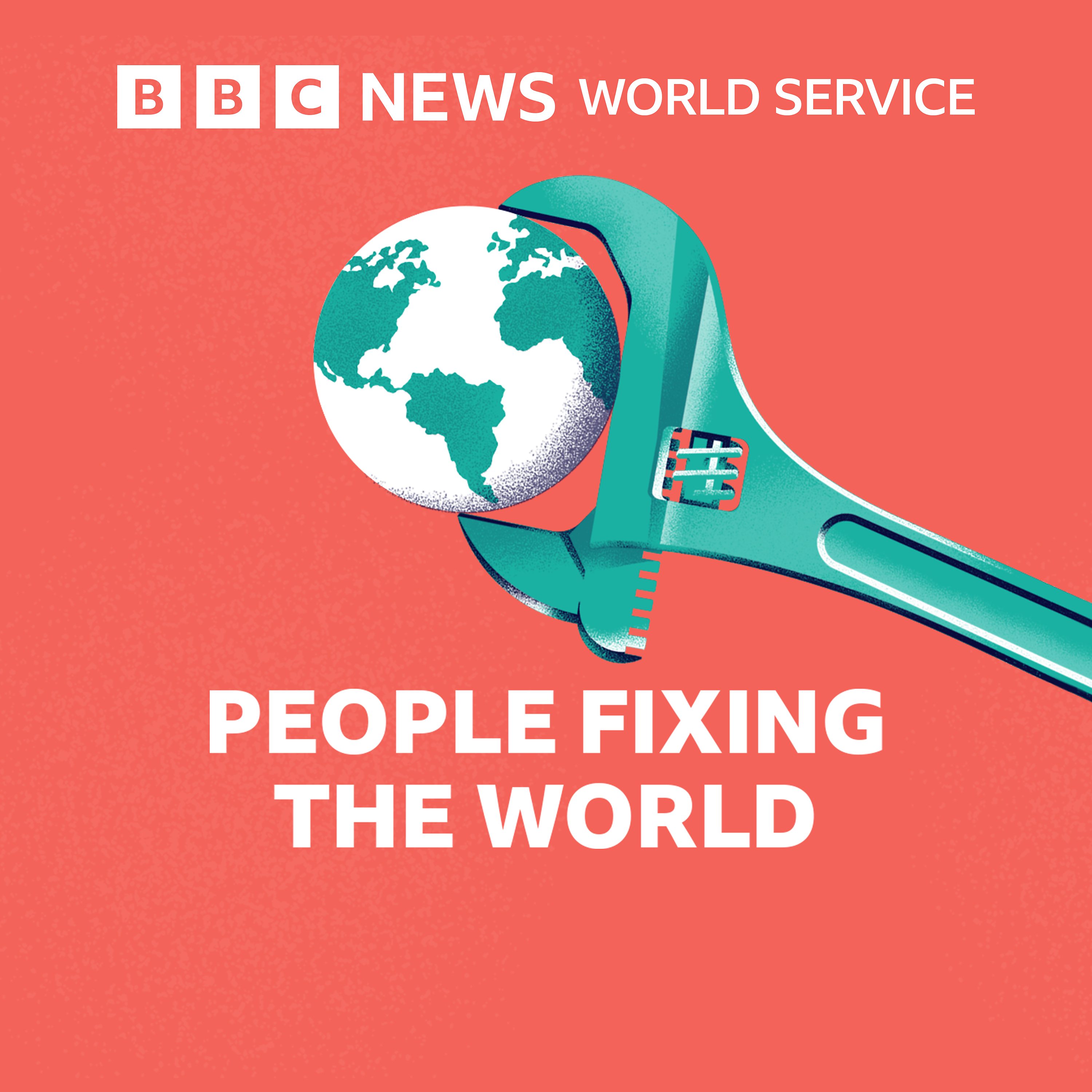

People Fixing the World
BBC World Service
Brilliant solutions to the world’s problems. We meet people with ideas to make the world a better place and investigate whether they work.
Episodes
Mentioned books

Oct 13, 2020 • 26min
How jellyfish can help us
Jellyfish blooms can cause havoc, scaring away tourists, clogging up fishing nets, and even getting stuck in power station cooling pipes.
But scientists are finding ways to use the creatures to help us solve some big problems. They think jellyfish mucus could filter microplastics from our water systems, and their collagen could help us develop new medicines. And some want to see jellyfish on our plates.
Produced and presented by Ruth Evans
Picture credit: Getty Images

Oct 6, 2020 • 26min
Training police to patrol each other
A growing number of police departments in the US are introducing a new concept in their training - teaching officers on the beat how to step in when they see a colleague doing something they don't think is right. After the killing of George Floyd and the Black Lives Matter protests, a programme pioneered by police in New Orleans is being developed for other forces. Presented and produced by Daniel Gordon.Picture credit: Getty Images

Sep 29, 2020 • 24min
Getting rid of AI bias
It’s not just search engines that are powered by artificial intelligence. From the courts to the jobs market, AI is influencing decisions that have a big impact on people’s lives.
But researchers now believe that not all people are treated equally by some algorithms. They’ve found potential bias - influenced by race, class and gender - can have an impact on the decisions that computers make.
Some programmers, computer scientists and entrepreneurs hope to fight this bias, using the technology that created it in the first place.
Produced and presented by Craig LangranImage: Getty Images

Sep 22, 2020 • 24min
How to prevent drowning
We hear how AI lifeguards are helping to spot danger on Israel’s beaches, while on Lake Victoria special forecasts for fishermen are saving hundreds of lives. Meanwhile in Bangladesh, community creches and bamboo swimming stages are reducing deaths among children – the group at highest risk of drowning. It’s estimated that 320,000 people around the world die in the water each year. Produced and presented by Claire BatesPhoto: Getty Images

Sep 15, 2020 • 24min
Smartphones saving the rainforest
Old smartphones powered by solar panels are being used to catch illegal loggers in rainforests across the world. Each year, more than 150 million mobiles are discarded in the US alone - so we’re looking at clever ways to reuse them. But should we really rethink our consumer habits and keep our phones for longer? Produced and presented by Julie Ball.Photo: Rainforest Connection

Sep 8, 2020 • 24min
A happier planet
Looking for the happiest places in the world. We follow in the tracks of someone who gave up his job to cycle round the world to investigate happiness. From Costa Rica to Canada to Bhutan - what are the best ways of bringing about a happier planet?

Sep 1, 2020 • 24min
Keeping data forever
Could your family photos end up being stored on a piece of glass? Might you find yourself saving a file to DNA storage? Or downloading a video from a data centre in space?Current methods of storing information are susceptible to decay and have limited capacity but novel approaches could provide plentiful storage so that our selfies outlast our species. Reporter/ Producer William Kremer for the BBC World Service. Picture credit: Southampton University

Aug 25, 2020 • 24min
Could a device invented in the 1930s help end period poverty?
Period poverty affects girls and women across the world who can’t afford to buy sanitary pads or tampons each month. So what are the alternatives? In a refugee camp in Jordan, we follow one woman as she tries to get a sanitary pad micro-factory off the ground. While in Malawi, they’re handing out menstrual cups to teenagers.This podcast was first published on 7 May 2019Presenter: Vibeke Venema
Producer: Tom Colls(Photo Caption: A menstrual cup / Photo Credit: Getty Images)

Aug 18, 2020 • 25min
The mums saving each other from a taboo condition
"Get rid of the girl who smells" - this is the reaction thousands of traumatised new mothers face every year because of a condition called fistula. But in Madagascar some women, who have successfully been treated, become patient ambassadors finding others with the same condition. They personally accompany them to clinics to get life-changing surgery and support. This podcast was first published on 2 April 2019.Reporter/ Producer: Amelia Martyn-Hemphill
(Photo: Felicia - a patient ambassador in Madagascar)

Aug 11, 2020 • 24min
The tech doctors forecasting heart failure
Monitoring devices implanted in a person’s chest are helping doctors predict if something is about to go wrong with a patient’s heart. Sometimes they can tell a month in advance. It’s allowing cardiologists to adjust treatment and prevent problems before they occur. Produced and presented by Nick Holland.


